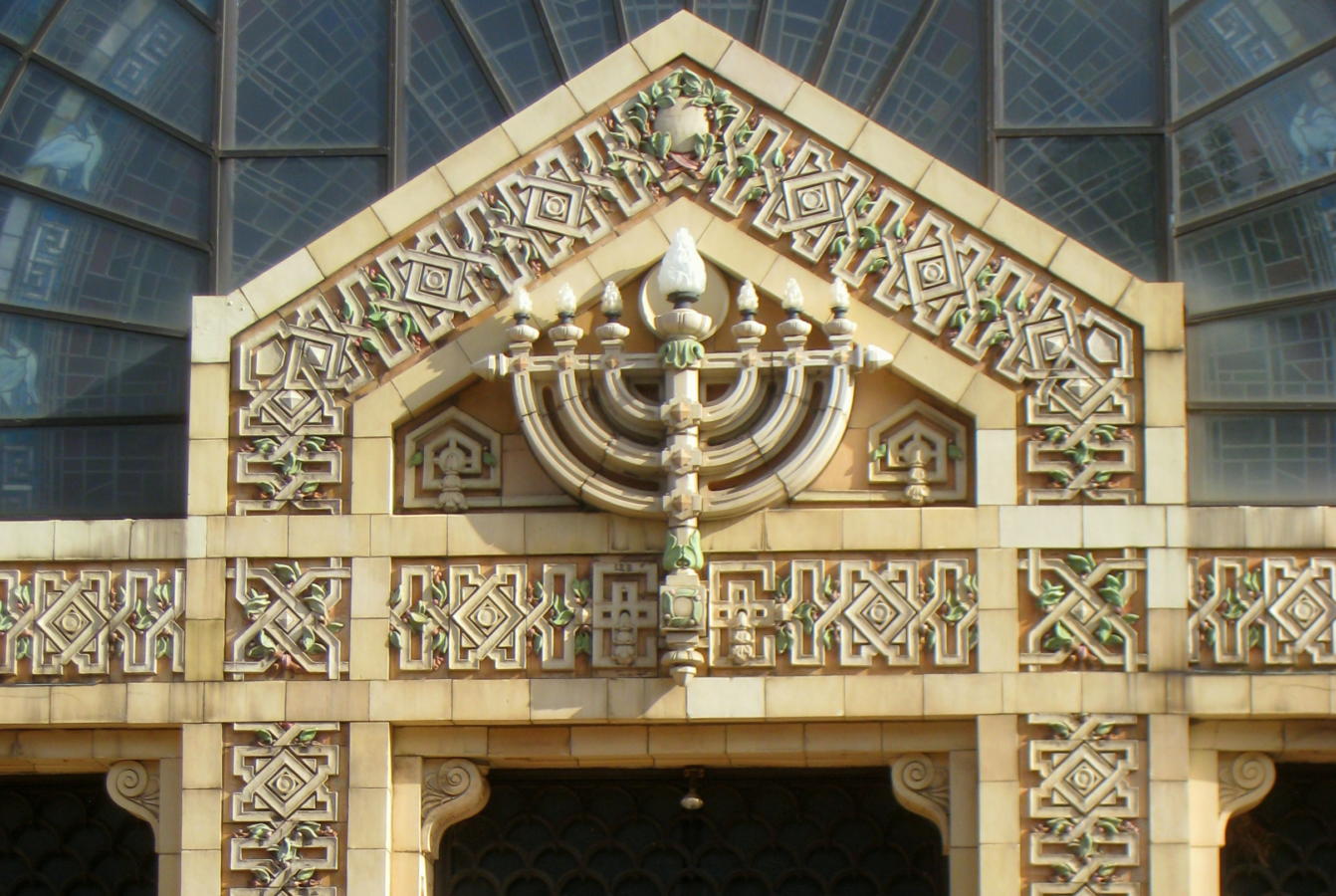It’s always nice to have a melody to hum on the way home from Kabbalat Shabbat, the evening worship service that welcomes Shabbat into our midst. Those final moments of prayer are often dedicated to communal singing that brings the worship to a close in a graceful and thoughtful way. In addition to having several hummable melodies, Yigdal, a common selection for Friday nights, artfully summarizes some key Jewish concepts and provides food for thought for the walk home.
Learn how to chant Yigdal here.
Yigdal is a thematic meditation on Maimonides’ Thirteen Articles of Faith. Maimonides concisely boiled down Judaism’s essential tenets, arguing that anyone who cannot stand by them in perfect faith is a heretic. The wording of Yigdal is attributed to Daniel ben Judah of Rome (14th century), who riffed on a longer poetic summary of the principles by Immanuel of Rome (dated a little earlier).
The content of Yigdal’s thirteen couplets serves as a chronological summary of Judaism, following the order of the original thirteen principles. According to Alyssa Gray, professor of rabbinics at Hebrew Union College-Jewish Institute of Religion, the first principles about God harken to the time before Creation, when there was only God:
With your help, My Jewish Learning can provide endless opportunities for learning, connection and discovery.
- Glorify and praise the living God, who exists, but not in time—
- Singular and unique, hidden and unbounded,
- Having no body, not a physical being: we cannot describe God’s distinctness.
- God existed before every thing; first of all—but with no beginning.
The piece then moves onto the creation of humanity, and God’s relationship to us:
- This is the Master of the world; all of creation points to God’s greatness and sovereignty.
- Prophetic inspiration was bestowed upon the people God treasured and honored.
- There never arose in Israel another like Moses, a prophet able to see the very likeness of the Divine.
- By the hand of this prophet, trusted in God’s house, Torah, a truthful teaching, was given to God’s people.
- God will never alter the divine law, nor change it for another.
- God knows our innermost thoughts, and foresees their consequences from the start.
- God repays the righteous for their deeds; punishes evildoers in accord with their transgressions.
And in the end, Yigdal invites us to imagine the unimaginable future, beyond our lifespans and beyond our comprehension.
- The Divine will send us our Messiah at the end of days, redeeming those who wait for the time of God’s triumph.
- God, with great mercy, will give life to the dead—may God’s name be praised forever.
Through Yigdal, we spare a moment to sing about our past, present, and future. It can be humbling to situate ourselves in the grand span of Jewish time, feeling small amidst the universe of possibilities that extends before and after our lifespans.
We find Moses featured in the middle of Yigdal. It seems a fitting place for such a central figure and our primary archetypal leader. Moses, we are told, had a more intimate relationship with God than anyone else has ever had or will ever have. The Midrash even tells us that, at the time of Moses’ death, God ended his life with a kiss. Yigdal’s seventh line:
There never arose in Israel another like Moses, a prophet able to see the very likeness of the Divine.
No one else will ever be able to see God like Moses did. But didn’t the second stanza just tell us that God has no body that we can see or even describe? How, then, did Moses see God? In fact, if we look back to the place where Moses is described as seeing God in Torah, we read Moses asked to see God’s “glory,” and that God caused God’s “goodness” to pass before Moses. But Moses was not able to see God’s metaphorical “face.” (Exodus 33:18-23)
What, then, is Yigdal saying about Moses — and us — in this moment? While the first few stanzas seem to be praising God, they are more specifically relaying Maimonides‘ understanding that God defies our comprehension, description, and imagination. We know that Moses, who was the closest with God, understood God’s vision, but was never able to see God clearly, or understand all of God’s actions. And Yigdal reminds us that no one like Moses ever arose again. That, even Moses — who knew God best — did not not possess a perfect understanding of the world or the Divine.
Yigdal tells that not only can we not describe exactly our relationship with God, but that we never will be able to — and we never really have. And so we, who revere Moses as our greatest prophet and teacher, can also embrace our own questions, doubts, and sense of wonder at life’s mysteries. A prayer that seems to be about certainty turns out to actually be all about doubt and the limits of our own knowledge.
So whether you are accustomed to singing Yigdal to the classic melody adapted from the English hymn, “The God of Abraham Praise,” or a more modern setting, the next time Yigdal is stuck in your head on a Friday night you can use it as a reminder to consider: part of being human is taking some time every week to contemplate the big questions, and to accept that many of the answers will never come. And that is okay.
The translation of Yigdal used in this piece comes from Siddur Lev Shalem, published 2016 by The Rabbinical Assembly.



